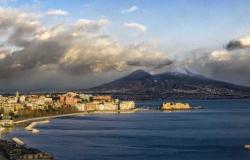On November 22, 2024, EDF formalized a colossal investment of 800 million euros for the construction of a power plant running on rapeseed in Corsica. This ambitious project, located in the Ajaccio region, aims to replace an old, obsolete fuel-fired power plant. With commissioning planned for 2027, this initiative is generating both enthusiasm and controversy.
An energy transition project: opportunity or mirage?
The objective stated by EDF is clear: reduce the environmental impact of island electricity production. The future Ricanto power plant promises impressive results:
- 75% reduction in nitrogen dioxide emissions.
- 90% reduction in fine particle emissions.
- Total elimination of sulfur emissions.
In addition, the transition to biofuel will reduce CO2 emissions by 300,000 tonnes per yearwhile saving 350,000 m³ of water. However, ecological associations such as Aria Linda and A Sintinella denounce “greenwashing” masking potentially disastrous side effects, particularly on local cultures.
A strategic investment, but contested
The plant will consume each year 100,000 tonnes of rapeseed oila biofuel presented as a sustainable alternative. However, this consumption raises several issues:
- Pressure on agricultural land: Importing or growing locally such a quantity of rapeseed could compromise the agricultural balance of the island.
- Cost and logistics: Local production remains limited, potentially requiring massive imports.
- Reactions from local actors: While some, like Michel Fazini (CGT Énergie), welcome a modernization expected for 20 years, others call for a more ambitious and diversified energy plan.
EDF is committed to securing island energy supplies while supporting employment. But the financing of 1.2 to 1.3 billion euros over 5 years in Corsica, including the dismantling of the old Vazzio power station, is fueling debates on the distribution of public resources.
An environmental breakthrough or an ecological impasse?
The Ricanto power plant marks a technological breakthrough, but it does not escape criticism. Environmentalists call it “half-hearted”. The term “necrofuel”, used by some activists, illustrates tensions around indirect ecological impacts :
- Deforestation and monocultures to support demand.
- Lack of transparency on the origin of raw materials.
Environmental comparison between the Vazzio and Ricanto power plants
| Criteria | Vazzio power station | Ricanto power station |
|---|---|---|
| CO2 emissions | Very high | Reduction of 300,000 tonnes/year |
| Fine particles | High | 90% discount |
| Water consumption | Not optimized | Savings of 350,000 m³/year |
| Energy source | Heavy fuel oil | Biofuel (rapeseed oil) |
Despite obvious benefits, dependence on a single type of biofuel raises questions. The island's energy needs continue to increase, particularly due to the rise of electric vehicles and dockside electrification of ports. The Corsican community will have to reassess its energy programming to meet future challenges.
The scheduled closure of the Vazzio power plant in 2027 marks a milestone, but the island's energy transition requires more diversified solutions, including wind, solar and battery storage.






